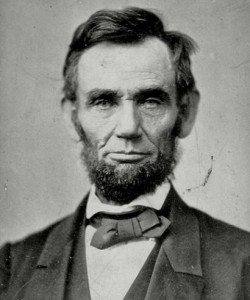 Cases decided in the last few weeks are mostly good for business, not because they fail to enforce the ADA, but because they refuse to let dubious serial filer claims get beyond the initial pleading stage. Here’s the lineup.
Cases decided in the last few weeks are mostly good for business, not because they fail to enforce the ADA, but because they refuse to let dubious serial filer claims get beyond the initial pleading stage. Here’s the lineup.
Standing and cheap standing
Cheryl Thurston v. FCA US LLC, et al., EDCV172183JFWSPX, 2018 WL 700939, at *3 (C.D. Cal. Jan. 26, 2018) is a district court decision that in some ways anticipates the 5th Circuit decisions we blogged about earlier this week. It is a web accessibility case and could be crucial in the effort to stop abusive serial litigation against websites. The plaintiff alleged in general terms that she had tried to use the defendant’s website to find a dealer and that she found barriers to access. She did not allege that she was unable to find a dealer, and for the Court this meant she had failed to allege an injury. This may seem obvious, but courts in the Ninth Circuit have a long history of holding that mere exposure to an inaccessible public accommodation is sufficient to state a claim under the ADA based on the notion that it makes the plaintiff feel bad to see ADA violations. Rejecting that argument and requiring at least an allegation of real injury would be a giant step forward for getting rid of abusive litigation.
Kennedy v. Taco City 3, Inc., 617CV634ORL40DCI, 2018 WL 798219, at *2 (M.D. Fla. Feb. 9, 2018) is another case suggesting that courts caught in the maelstrom of abusive ADA lawsuits are resisting doctrines of cheap standing. In Kennedy the defendant defaulted, a situation that usually means the plaintiff will have little trouble winning. Nonetheless, the Court refused to grant a default judgment, finding that a conclusory allegation that various barriers to access “deprived Plaintiff the full and equal enjoyment” of the business was insufficient because no facts were pleaded. This kind of formula is common in serial filings because the plaintiff, who never intended to visit the business anyway, doesn’t want to be tied down to a claim of injury that can be disproven. Rejecting it in a default judgment situation provides hope that courts will continue to take a hard look at standing in cases of this kind.
Winkle v. Kings Mall Ct. LLC, 116CV325GLSCFH, 2018 WL 679466, at *2 (N.D.N.Y. Feb. 1, 2018) looks at a different standing issue, that of intent to return. Intent to return is an element of an ADA case because only injunctive relief is available and only an intent to return creates a future injury that an injunction might redress. The Court rejected as inadequate a bare bones allegation of an intent to return, which it found did not permit an inference that the plaintiff would in fact return when he lived almost 2000 miles from the defendant mall.
Rivera v. Plaza Tu Supermercado, Inc. et al, 2018 WL 791244, at *1 (D.P.R. Feb. 8, 2018) is a more or less standard denial of a Rule 12(b)(6) motion to dismiss based on the standing that can be contrasted with Winkle v. Kings Mall. In this case the plaintiff alleged frequent visits to the defendant based on travel to see her family and friends. Those facts, absent in the Winkle case, made it reasonable to infer she would indeed return.
Mixed responsibility for programs and services.
Ashby v. Warrick County School Corp., 316CV00190RLYMPB, 2018 WL 746093, at *4 (S.D. Ind. Feb. 7, 2018) looks at the sometimes tricky question of just who is providing a program or service covered by the ADA. In this case a local non-profit put on a Christmas program in its facility, which was not accessible. Local schools were invited to send choirs to perform, but the school staff was not paid for its time and all the proceeds went to the non-profit. After examining the question of just whose “program or activity” the Christmas program was the Court concluded that it was not a program or activity of the schools despite their role in advertising and to some extent organizing the student performances. The Court admits it was “close call” so the opinion is worth reading for its discussion of the line between helping with a program and being responsible for it.
ADA pleading

